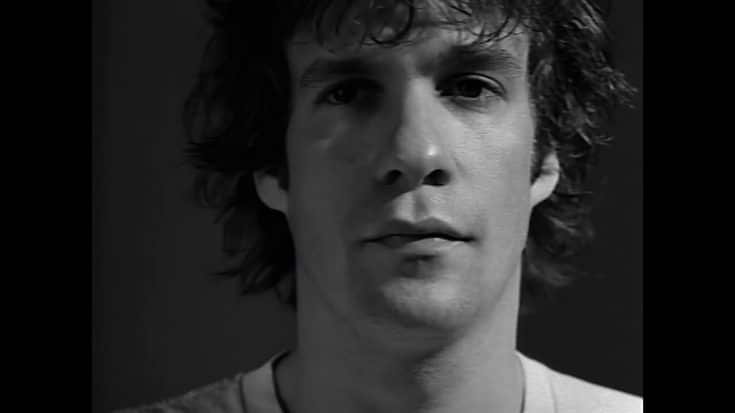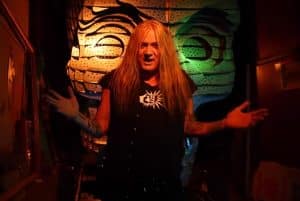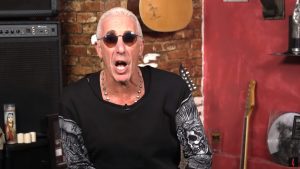The Story Of The Famous Rock Band That Broke Up Onstage

via RHINO / Youtube
For the Replacements, anything but chaos was unusual. Their music pulsed with raw energy, fueled by youthful angst and a penchant for self-destruction. Every concert felt like a tightrope walk, teetering between exhilaration and disaster. It was a fitting way for them to exist, and ultimately, to end.
25 years ago, on July 4th, 1991, the Replacements took the stage at the Taste of Chicago festival in Grant Park. It was their last song, their last gasp, their final middle finger to expectations. It wouldn’t be a graceful exit, that much was certain.
As they launched into “Hootenanny,” bassist Tommy Stinson’s prophetic shout echoed through the crowd: “It’s the (expletive) last time you’ll ever hear it!” With that, the Replacements embarked on a glorious descent into sonic mayhem, trading instruments, handing them to roadies, and melting into a cacophony of feedback and screams.
It was a fittingly messy end for a band that never played by the rules. The Replacements’ story isn’t just about a fiery breakup – it’s a testament to the enduring power of raw emotion, the beauty of imperfection, and the bittersweet truth that sometimes, the greatest finales are the most chaotic ones.
It has been a long time coming
The Replacements weren’t shy about their impending dissolution. On that overcast July afternoon, amidst tens of thousands of fans, Stinson’s “prophetic rant” punctuated a string of sarcastic remarks – their way of announcing their farewell at their biggest headlining gig ever.
Incredulous looks were exchanged as each member, one by one, relinquished their instruments to the roadies who, remarkably, finished the song with equal (if not greater) competence. This chaotic ending held a poetic ring – “the great-but-never-good-enough Replacements” finally replaced.
For Replacements fans, this might have been perfect. The band, after all, thrived on upending expectations. Turning potential successes into stumbles and mishaps into unexpected insights was their trademark. Moments of pure genius could melt into absurdity, creating a unique blend of poignant, desperate, and celebratory rock alongside the juvenile, cynical, and humorous (“I hate music,” declared frontman Paul Westerberg on their debut).
This onstage chaos mirrored the turbulence in their personal lives. Broken homes, childhood abuse, and alcoholism cast long shadows. They were dishwashers and janitors rescued by their ability to craft a powerful, shared voice. Yet, beneath the noise, there was vulnerability, pain, and a deep connection that fueled their music and resonated with fans who could relate to their messy, imperfect journeys.
https://twitter.com/facingproblem/status/1567243502664454144
Not your usual polished rockstars
And they weren’t your usual polished college rock darlings. The Replacements, in their early days, were anything but. They carved their teeth in the raw, rebellious world of hardcore punk, spewing caustic critiques of classic rock on albums like Sorry Ma Forgot to Take Out the Trash. Their music was a middle finger to the mainstream, a fiery reflection of their youthful angst.
But the Replacements weren’t content to be confined by a single genre. Their musical journey was a constant exploration, a restless search for new sonic landscapes. As they matured, melody began to weave its way into their previously abrasive soundscape. Westerberg, a longtime admirer of artists like Tom Petty, started infusing their music with a classic rock edge, evident in tracks like “Let It Be” and “Tim”.
These subtle shifts were the first whispers of a transformation, a hint at the band that would eventually win the hearts of college students across the nation. Though mainstream recognition might have been elusive, their willingness to experiment and evolve laid the foundation for their enduring legacy.
The Replacements’ music, however, never strayed too far from its punk roots. Even as they embraced melody, the raw energy and rebellious spirit of their early days simmered beneath the surface, ready to erupt at any moment. This duality, this refusal to be pinned down by genre, is what makes their music so captivating and timeless. They were, and still are, the Replacements: true to themselves and forever evolving.
They are a volatile bunch, especially during live performances
In the studio, the Replacements conjured magic, crafting songs that resonated. Yet, stepping onto the stage was a gamble. While some nights saw them deliver electrifying performances, their off-stage reputation as notorious partiers often followed them. More than just “warmed up,” they weren’t shy about hitting the stage intoxicated, pushing the boundaries of professionalism.
This recklessness reached a peak on their infamous Saturday Night Live appearance. During soundcheck, the band struggled with a song, leading a frustrated Westerberg to utter a live-TV expletive. He attempted to laugh it off, but the damage was done. Banned from the show, their wild reputation was solidified.
Though the late 80s saw them “fumble”, their musical evolution continued. Opening for Tom Petty on an arena tour, they showcased a shift towards melody in albums like Don’t Tell a Soul.
However, their inherent volatility remained. One fateful night in Chicago, things would take a dramatic turn, forever altering the course of the Replacements’ story.
Unpredictable and unapologetic heroes
The Chicago show continued, a meandering performance punctuated by Westerberg’s casual, almost resigned, declaration about people not wanting to hear us play anymore.
Their final song, “Someone Take the Wheel”, epitomized their raw energy, drifting through the set before they simply vanished. The Replacements, the band that thrived on defying expectations, left the stage in a way only they could – unceremoniously and unexpectedly.
Though reunions with various members emerged, the core group wouldn’t perform together again for years. But their impact resonated far beyond their final act. From Green Day to Nirvana, artists across genres acknowledged the Replacements’ influence on their early work. The band, never chasing mainstream acceptance, found themselves evolving from a force of chaos to an endearingly lovable entity.
The Replacements’ legacy isn’t defined by their messy ending, but by the raw emotion, vulnerability, and authenticity they poured into their music. They challenged conventions, embraced imperfection, and left behind a body of work that continues to inspire and connect with generations of fans. They were, and remain, the Replacements: unpredictable, unapologetic, and forever etched in the annals of rock history.











